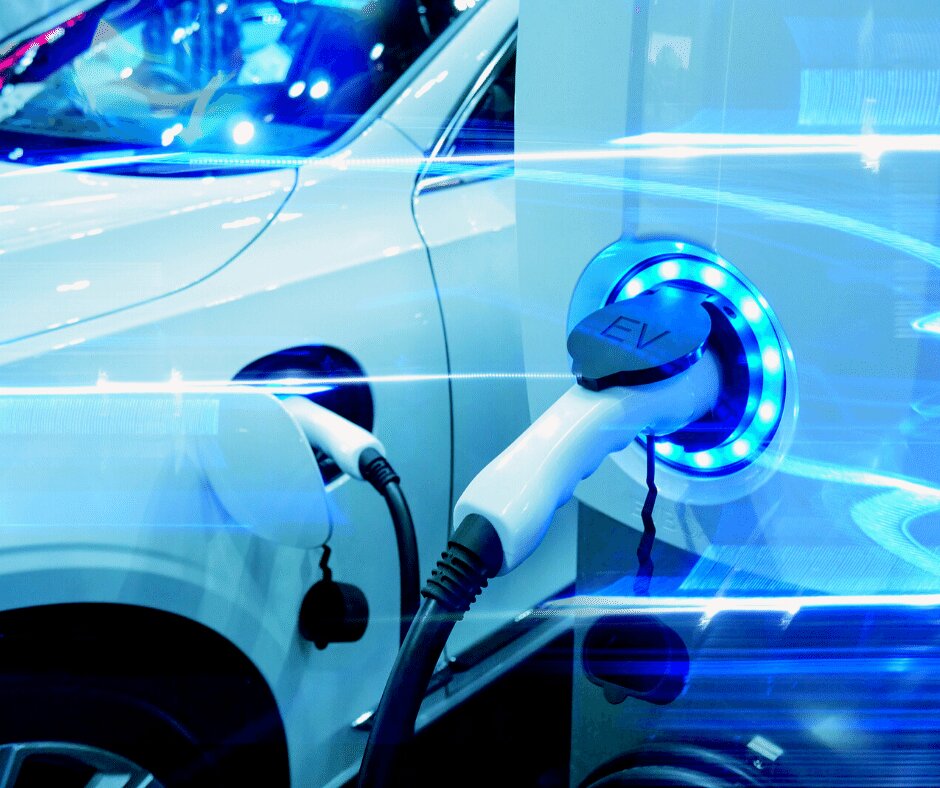
February 03, 2021
The future is electric under Biden
By Marx Layne – A Detroit-based public relations and digital media agency The outlook of electric vehicles (EVs) is expected to excel under the new administration if President Biden’s campaign promises were any indication. [...]
By Marx Layne – A Detroit-based public relations and digital media agency
 The outlook of electric vehicles (EVs) is expected to excel under the new administration if President Biden’s campaign promises were any indication. Here is automotive aficionado Michael Szudarek from Marx Layne & Company offering some key insights on what is to come.
The outlook of electric vehicles (EVs) is expected to excel under the new administration if President Biden’s campaign promises were any indication. Here is automotive aficionado Michael Szudarek from Marx Layne & Company offering some key insights on what is to come.
Buy American
Last week, President Biden signed his “Buy American” executive order to strengthen government procurement policies to buy American made products, invest in domestic manufacturing and support his green agenda, all in an effort to position the U.S. as a global leader in EV manufacturing. He also pledged to replace the entire US federal fleet of nearly 650,000 vehicles with American made EVs, creating a million autoworker jobs in clean energy and vehicles that are net-zero emissions. Switching to EVs would be an ardent step in President Biden’s climate change battle since the transportation sector is the largest contributor of greenhouse gas emissions in the country.
Lordstown Motors in Ohio is ready to take advantage of President Biden’s Buy American plan by launching its all-electric commercial pickup truck that is going to be used by fleets in the country.
Go green
As stated in President Biden’s “Year One Legislature Agenda on Climate Change,” he plans on fast-tracking the deployment of EVs by working with government officials to deploy more than 500,000 public charging stations by the end of 2030. He also plans to restore the full EV tax credit to incentivize the purchase of these vehicles, target middle class consumers where possible, and prioritize EVs made in America. Developing improved fuel economy standards and making smart infrastructure investments that withstand the impacts of climate change are also on the docket.
OEM outlook
Just days after President Biden signed his Buy American executive order, General Motors, the largest U.S. automaker, announced it would stop producing gas-powered cars and trucks and focus exclusively on manufacturing zero-emission vehicles by 2035 with plans to be carbon neutral by 2040. In fact, GM has plans to introduce an electric Hummer SUV, in what seems like an oxymoron, since Hummers are not typically thought of as eco-friendly.
In addition to Ford’s all-electric F-150 to be launched in 2022, they are planning on investing $100 million in its Kansas City Assembly plant which will begin production of its new E-Transit electric van this year.
Tesla continues to dominate the EV market as the world’s leader in clean, battery operated cars while electric car start-up, Rivian, is developing a fleet of Amazon delivery trucks and will be releasing an electric truck and SUV later this year.
The future of manufacturing
Global automakers are planning giant investments in EV technologies – both plug-in hybrids and battery electric vehicles (BEVs) – over the next decade and this inevitable shift away from internal combustion engines (ICEs) will profoundly transform the manufacturing landscape that currently employs thousands or workers.
The biggest impact will likely be seen at plants producing engines and transmissions. EVs have fewer parts than their gasoline guzzler counterparts. Consequently, that means EV production will likely require less manpower than production of a conventional vehicle fueled by gasoline. In addition, EVs may require less maintenance and potentially put some mechanics out of business.
On the other hand, EV production could offer new opportunities to retrain workers to build batteries or assemble electric drivetrains – the components and systems that transfer power from the engine and transmission to the wheels – and ensure jobs remain in the U.S. manufacturing ecosystem.
Supply chain diversification
As electrification continues to disrupt the automotive industry and progress to mainstream adoption, it is creating uncertainty about the future of some auto parts suppliers. Many of the individual components that are quintessential to today’s standard ICE vehicles are absent from EVs. For example, manufacturers of transmissions, exhaust and fuel systems are most at risk. While it may be years before ICEs become extinct, now is the time to prepare for the transition.
Legacy suppliers will need to adapt to the new electric technologies and diversify their portfolios. Look at automotive exhaust manufacturer Eberspaecher. They offer heating and AC components for both ICE vehicles and EVs as part of their e-mobility strategy.
Freudenberg Sealing Technologies, a leading specialist in sealing applications is now investing in batteries and fuel cell development, as well as seals for electric power usage, in response to the growing EV market.
The electric future is also paving the way for many investment opportunities and partnerships, especially with tech giants to meet the challenges ahead.
No doubt it is an exciting time to be in the automotive industry. Now let us see what the next four years will bring with President Biden leading the electric charge.
Share This Story, Choose Your Platform!
Marx Layne is your competitive advantage.
Your reputation and success are our only concerns.
